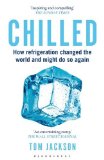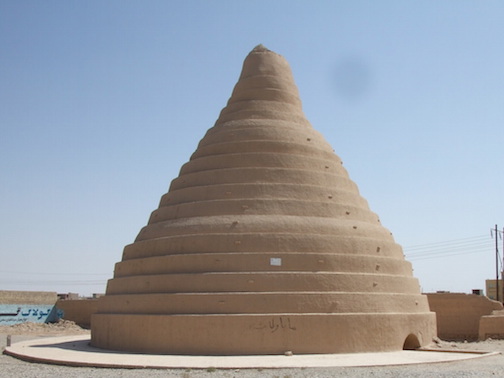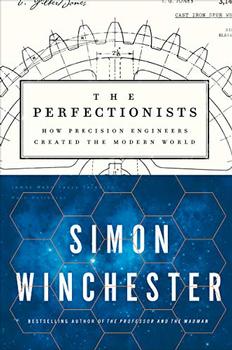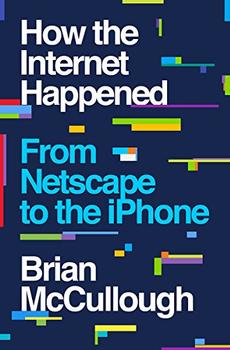Summary | Excerpt | Reviews | Beyond the book | Read-Alikes | Genres & Themes | Author Bio

How Refrigeration Changed the World and Might Do So Again
by Tom JacksonThe refrigerator may seem mundane nowadays, but it is one of the wonders of twentieth-century science - lifesaver, food preserver, social liberator.
Part historical narrative, part scientific decoder, Chilled looks at early efforts to harness the cold at the ice pits of Persia (Iranians still call their fridges the "ice pit") and ice harvests on the Regents Canal. As people learned more about what cold actually was, scientists invented machines for producing it on demand. The discovery of refrigeration and its applications features a cast of characters that includes the Ice King of Boston, Galileo, Francis Bacon, an expert on gnomes, a magician who chilled a cathedral, a Renaissance duke addicted to iced eggnog, and a Bavarian nobleman from New England.
Refrigeration technology has been crucial in some of the most important scientific breakthroughs of the last one hundred years, from the discovery of superconductors to the search for the Higgs boson. Refrigeration is needed to make soap, store penicillin, and without it, in vitro fertilization would be impossible. And the fridge will still be pulling the strings behind the scenes as teleporters and intelligent-computer brains turn our science-fiction vision of the future into fact.
Introduction
The refrigerator is something of a Boo Radley, the cloistered figure in Harper Lee's To Kill a Mockingbird: it's normally pale, frequently indoors, seldom thought about much but always there, and in the end (spoiler alert) we need it to make everything all right.
The point is that among the cast of characters that tell the story of refrigeration and its impact on humanity, the refrigerator itself does not have much of a starring role. It just hangs around in the background most of the time, being cool.
You'd be forgiven for thinking that refrigerators, fridges, are nothing to get excited about. They are nothing special. There are hundreds of millions of them. Every household in the developed world has one; a quarter of American homes have at least two. And elsewhere a refrigerator is at the top of the wish list of household appliances – just below the television. When we fancy something cold – an ice cream, glass of milk, chilled beer – ...
From the sands of ancient Persia to the refrigeration technologies of tomorrow, Chilled is a fact-filled ride sure to please the nerd in all of us. It’s...er...a wicked cool story...continued
Full Review
(641 words)
This review is available to non-members for a limited time. For full access,
become a member today.
(Reviewed by Poornima Apte).
 Long before the advent of the refrigerator, around 400 BCE, the ancient Persians had figured out a way of making ice and having it readily available even over the summer. At its most basic, the solution took advantage of the low humidity and cool desert nights, especially in winter, to make ice and then store it in an insulated building called the yakhchal all through the summer months. The yakhchal, quite a few of which are still standing today, are tall structures that look like inverted ice cream cones or spinning tops.
Long before the advent of the refrigerator, around 400 BCE, the ancient Persians had figured out a way of making ice and having it readily available even over the summer. At its most basic, the solution took advantage of the low humidity and cool desert nights, especially in winter, to make ice and then store it in an insulated building called the yakhchal all through the summer months. The yakhchal, quite a few of which are still standing today, are tall structures that look like inverted ice cream cones or spinning tops.
 Persia used a qanat system of irrigation which is essentially a gently sloping system of channels, situated underground, used to divert water from aquifers as needed. To make the ice, each yakhchal had a series of ...
Persia used a qanat system of irrigation which is essentially a gently sloping system of channels, situated underground, used to divert water from aquifers as needed. To make the ice, each yakhchal had a series of ...
This "beyond the book" feature is available to non-members for a limited time. Join today for full access.

If you liked Chilled, try these:

by Simon Winchester
Published 2019
The revered New York Times bestselling author traces the development of technology from the Industrial Age to the Digital Age to explore the single component crucial to advancement - precision - in a superb history that is both an homage and a warning for our future.

by Brian McCullough
Published 2018
Tech-guru Brian McCullough delivers a rollicking history of the internet, why it exploded, and how it changed everything.





